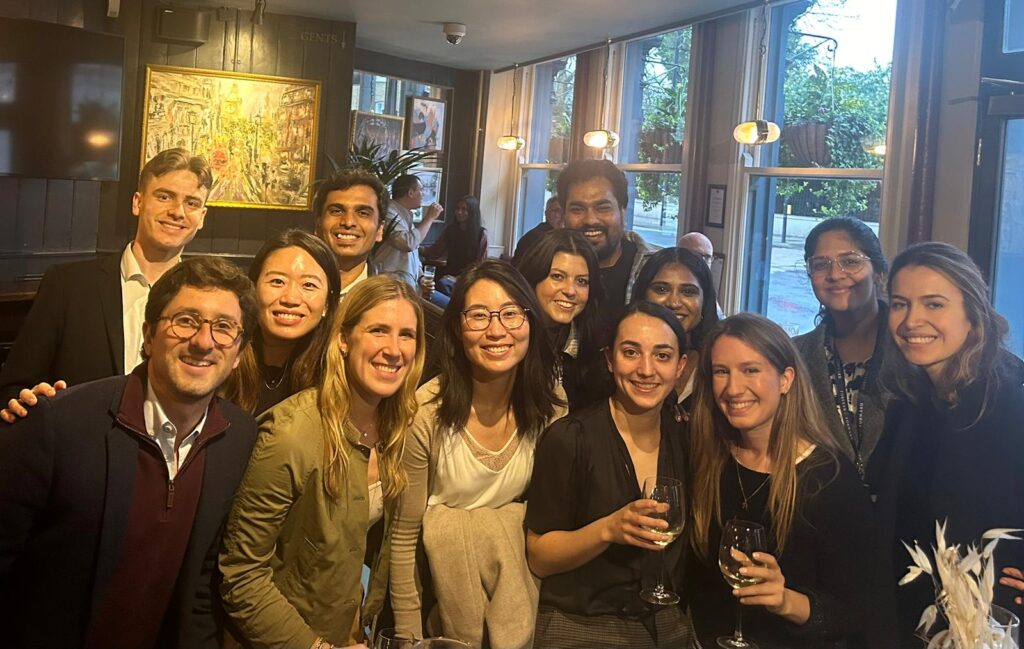By Sandra Sim, MBA2024

I’ve been extremely grateful for the amazing opportunities to learn more about specific industries, not just from an academic perspective but through actual conversations with industry leaders. In March, the Social Impact Club organised an Impact Investing Trek in London, where 40 of us students spent a week visiting 9 firms, spanning across the spectrum of impact investing. I was particularly impressed with and grateful for the level of depth at which the firm representatives openly shared about their firms, investment themes and approaches. They also shared insights into impact measurement, and in general, what a career in impact investing entailed.
For instance, many of the firms are adopting a thematic approach, focusing on select investment themes, such as sustainable aquaculture, and investing in companies where improving the business means improving both financial returns and scaling the impact created. The firms also had impact teams and investment teams that worked hand-in-hand to evaluate deals from an impact and financial perspective respectively, and manage portfolios.
My top takeaways:
- Impact investing is growing. There is a growing number of specialist funds, e.g. funds focused in green hydrogen or nature-based solutions, which is an indication of the size of the opportunity in the climate market. At the same time, more traditional/generalist managers are launching impact funds. In 2021, TPG launched their Rise Climate fund. LPs like Cambridge Associates have also been growing their impact teams.
- Financial returns and impact mostly move in lockstep. Impact shouldn’t come as an afterthought, like in many cases with CSR programmes. Instead, it should be core to the business model. Many of the impact funds target at least at-market returns for investors.
- There is plenty of innovation as the space continues to develop. In cases where markets are still fairly nascent (e.g. nature-based solutions), fund managers are devising creative ways to attract private investment where sufficient funding was previously unattainable. In addition to blended finance, managers are also working with project/asset owners to generate new revenue streams in order to make the economics work.
Overall, we met many amazing people from diverse backgrounds who are using their unique strengths and expertise to channel capital towards the solutions that will make the world more sustainable and equitable.
Explore the MBA Programme here.
